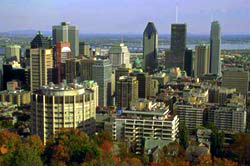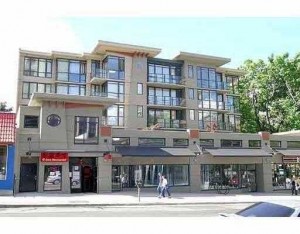July 7, 2009

- http://vancouver.craigslist.org – well-known around the world free advertising website. Find your city and start searching.
- http://vancouver.kijiji.ca/ – Canadian version of craigslist
- http://www.myidealhome.com/ – Canadian website advertising housing for rent
- http://www.myhomevancouver.com/ – Vancouver website advertising not only apartments but houses, basements, offices, townhouses, storages and retail space for rent as well.
- http://www.rentseeker.ca/ – housing for rent across Canada search tool.
- Mikhail Arbetov’s selection of housing for rent search links
The next important sources for gathering information are internet newspapers, online forums, social network systems etc.
- At www.arbetov.com – phone business directories for some Canadian cities, including phone numbers of housing units’ owners and apartment building managers.
- Online forums featuring Housing for rent discussions. You can ask questions and receive answers.
The third important source – people you know. Don’t forget to tell them that you are looking for an apartment for rent; this is how 30% of people looking for a place find their apartment.
All the above mentioned resources help you finding a place to live. Now it is time to find out whether the place suits you. Decide upon your budget and the price you are willing to pay for rent.
Here is what you should consider while making such a decision.

The proximity of a fire or ambulance station. Not every prospective tenant would find solace in sounds of ambulance or fire engine sirens, especially when one wants to sleep or simply requires some quite time.
- http://vancouver.ca/fire/about/map.html – the map shows you all the fire stations in Vancouver and double clicking on the number of a station will display the address.
- Vancouver ambulance stations map – the map shows all the ambulance stations in Vancouver.
Respectively, you can fond out other information about our city. Children’s hospital in Downtown Vancouver has a helicopter landing. Naturally, the people living in close proximity hear the sounds of a helicopter ambulance.
The ads often mention whether the pets are allowed. If you are not particularly fond of dogs barking and cats meowing in March, such a place will most likely not be the choice of your preference.
There are other ‘animal kingdom’ representatives most likely not mentioned in conditions of lease. The bed bugs. Tenants of apartments and hotels can report the information on bedbugs at Bed bugs Occurrence Registry website. Verifying whether the place you intend to rent is mentioned on this website would save you from countless sleepless nights and risky memories.
Parking. Is there a free parking by the building; are the parking spaces available; is there a covered parking area, or a guest parking?
Public transportation. If you are not going to have a car in the beginning, pay attention to the proximity of bus stops and sky train stations.
Crime rate. Don’t panic. This passage refers to apartment break ins. Make a call to local insurance companies to find out how much is the robbery and vandalism coverage premium specific for the place you are going to rent. Also, do not hesitate to visit the crime registry website where you can have a look at the crime statistics data for a particular area, including suicide, break ins, robbery, apartment theft, sexual harassment, car theft, car vandalism, homicide rates etc.
If the place you found suits you perfectly, call the landlord or the building manager and schedule an appointment. Be attentive during such an appointment. In case of a conflict or some problematic situations, this would be the very person to deal with. If this is not a person you fell at ease with, there still is a chance of passing on signing the agreement.

Other articles related to subject:
How to find inexpensive housing for rent in Canada
Experience of living in a Canadian housing co-op
Adventures of living in a Canadian housing co-op
All you need to know about buying furniture in Canada
Short video featuring apartments for rent